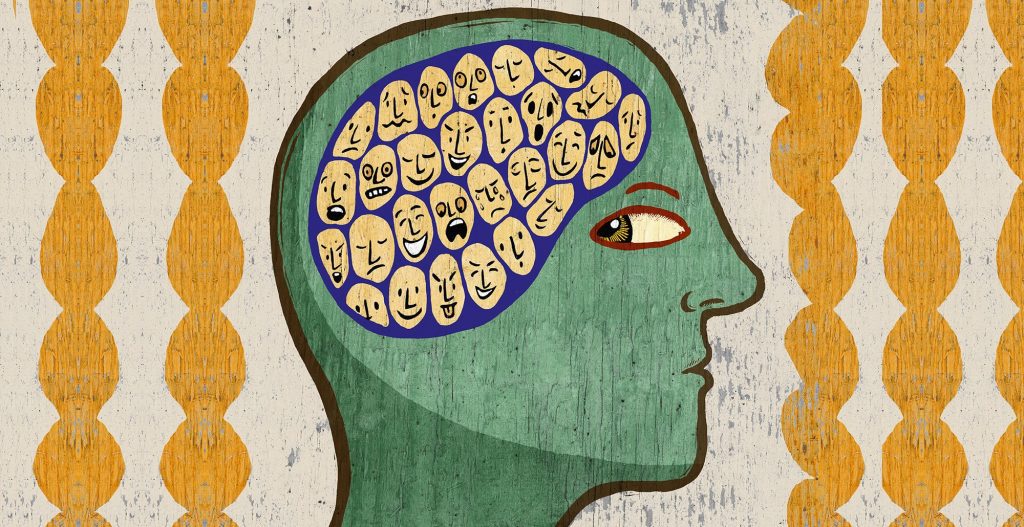If your family is experiencing difficulties, you may be considering family systems therapy. This type of therapy can be very beneficial for families who are struggling. It can help to identify and resolve the underlying issues that are causing problems within the family. In this blog post, we will discuss what family systems therapy is and how it can help your family.
Contents
- 1 What Is Family Systems Therapy?
- 2 Different Techniques of Family Systems Therapy
- 3 What Does Family Systems Therapy Help With?
- 4 Working of Family Systems Therapy
- 5 Sessions of Family Systems Therapy
- 6 Benefits of Family Systems Therapy
- 7 Limitations of Family Systems Therapy
- 8 Alternatives of Family Systems Therapy
- 9 Conclusion
- 10 A Word From Therapy Mantra
What Is Family Systems Therapy?
 Family systems therapy is a type of therapy that studies how family members interact with each other. It looks at the family as a unit and examines how the individual members affect the overall functioning of the family.
Family systems therapy is a type of therapy that studies how family members interact with each other. It looks at the family as a unit and examines how the individual members affect the overall functioning of the family.
This type of therapy also means that the therapist will be working with all members of the family, not just the individual who is seeking help. Sometimes these family sessions can be quite intense, as the therapist will be trying to get everyone on the same page and working towards the same goal. It also means that the therapist will be looking at past family dynamics and how they may have contributed to the current problems.
This therapy makes use of different techniques, such as communication drills, role-playing, and family meetings. It is often very effective in treating issues like addiction, marital problems, and behavioral problems in children.
Different Techniques of Family Systems Therapy

There are many different techniques of family systems therapy. Some of these are:
Genorgra
This technique is used to help identify how family members interact with each other. It also looks at how the family functions as a whole. This technique also makes use of diagrams to help identify the family’s structure.
Bowenian Theory
This theory looks at how a family functions as an emotional unit. It also looks at how each family member is affected by the others. This theory uses a system of triangles to diagram the relationships within the family.
Structural Family Therapy
This therapy technique looks at how families are structured and how they interact with their environment. It also examines how these structures can limit or contribute to problems within the family. This therapy method uses grids to diagram the family’s structure and interactions.
Family sculpting
This technique allows family members to create a model of their family. This can help them see how they interact with each other and what patterns they follow. It also helps them to see how they might want to change these patterns.
Systems Mapping
This technique helps to map out the relationships between different members of the family. This can help to identify any problems that may exist. It may also help to see how the family interacts with their environment. Sometimes, this technique uses drawings or symbols to represent the family members and their relationships.
What Does Family Systems Therapy Help With?

There are many different problems that family systems therapy can help with. Some of the most common include:
Addiction
Sometimes in this family systems therapy, the therapist will ask family members to complete an addict inventory. This is a questionnaire that asks about the person’s relationship with the addict and their feelings towards them. It can help the therapist to understand how addiction is affecting the entire family. It can also help the therapist to develop a treatment plan that will be most effective for the family.
Marital Problems
Family systems therapy can be very helpful in treating marital problems. The therapist will often work with both partners and try to get them to understand how their behavior is affecting the other person. They may also do some role-playing exercises to help the couple learn how to communicate better. It may also help to get the couple to attend some marriage counseling sessions.
Behavioral Problems in Children
Family systems therapy can also be very helpful in treating behavioral problems in children. The therapist will often work with both the child and their parents. They may try to get the family to participate in some family meetings so that everyone can share their thoughts and ideas about how to best deal with the behavior problem. The therapist may also use different techniques, such as communication drills and role-playing, to help resolve the issue.
Teen Anxiety
Sometimes, family systems therapy is used to help teens who are dealing with anxiety. The therapist will often work with the teen and their parents. They may try to get the family to participate in some family meetings so that everyone can share their thoughts and ideas about how to best deal with the anxiety.
Substance Use Disorders
Sometimes people use family systems therapy to help those who are struggling with a substance use disorder. The therapist will often work with the person and their family. They may try to get the family to participate in some family meetings so that everyone can share their thoughts and ideas about how to best deal with the substance use disorder. It may also help to get the person to attend some substance use disorder counseling sessions.
Relationship Issues
Sometimes, relationship issues can arise in a family. When this happens, it is often difficult for everyone involved to figure out how to fix things. Family systems therapy can help by providing a way for the family to communicate and work together to resolve the issues. It also helps to identify and address the underlying causes of the issues.
Working of Family Systems Therapy

The working of family systems therapy is holistic and looks at the dynamics of the family as a unit. It helps to identify and address the problems that are causing dysfunction in the family. The therapist will work with all members of the family to help them understand their role in the problem and how they can contribute to solving it.
The goal is not only to resolve the current issue but also to help create a more functional and healthy family system. Family systems therapy can be helpful for families who are struggling with issues such as addiction, divorce, communication problems, or behavioral issues. It can also be beneficial for families with multi-generational patterns of dysfunction.
Sessions of Family Systems Therapy
 The sessions of family systems therapy will be based on the family’s presenting problem. The therapist will first ask questions about the problem to get a better understanding of what is going on. They will then ask about each family member’s role in the problem and how they contribute to it. After that, the therapist will help the family develop a plan to address the issue.
The sessions of family systems therapy will be based on the family’s presenting problem. The therapist will first ask questions about the problem to get a better understanding of what is going on. They will then ask about each family member’s role in the problem and how they contribute to it. After that, the therapist will help the family develop a plan to address the issue.
There are about four sessions of family systems therapy, but it can vary depending on the problem.
Each session lasts for about an hour.
Benefits of Family Systems Therapy

Therapy for individuals within a family system is oftentimes more beneficial than working with each person separately. By addressing the issues within the family unit, everyone can benefit from improved communication and relationships. If you are experiencing difficulties in your family life, consider seeking out family systems therapy. Some of these benefits are:
Helps With Communication Problems
This therapy can help family members communicate more effectively with one another. It can also help those who have difficulty communicating to do so in a safe and constructive way. It also allows family members to understand how their words and actions affect others.
Improves Relationships
When relationships within a family are strained, this therapy can help to improve them. It does so by helping family members learn more about themselves and each other. Additionally, it can help them to identify the patterns of behavior that have led to problems in their relationships. There may be some dysfunctional family dynamics that have been passed down from generation to generation. This therapy can help to break the cycle.
Helps With Substance Abuse
If there are issues of substance abuse or mental illness within a family, this therapy can address them. It does so by helping family members understand how these problems affect not just the individual, but the entire family. Additionally, it can help to develop a plan of action for how to best address these issues.
Helps Families In Crisis
If a family is going through a crisis, this therapy can help them get through it. It can provide support and guidance during a difficult time. It can also help families to learn how to cope with difficult situations in the future. sometimes family systems therapy can be the best hope a family has.
Improves Mental Health
Family systems therapy may also improve the mental health of family members. It can help to reduce stress, anxiety, and depression. Additionally, it can increase self-esteem and improve relationships. It may also help family members to better cope with difficult life situations.
Helps In Emotional Regulation
Sometimes family members can have a difficult time regulating their emotions. This therapy can help them to do so. It can teach them how to identify and express their emotions in a healthy way. Additionally, it can help family members to better understand the emotions of others. This can lead to improved relationships.
Helps With Parenting Skills
There are times when parents may need help with their parenting skills. This therapy can provide them with that help. It can teach them how to set boundaries, discipline effectively, and communicate better with their children. Additionally, it can help parents to understand the emotions of their children and how to best address them.
These tips will help you to decide if family systems therapy is right for your family. If you feel that it may be beneficial, be sure to discuss it with a therapist.
Limitations of Family Systems Therapy

If there are benefits to family systems therapy, then what are its limitations? Some of these are:
May Take Time For Results
Sometimes these may take a while to see results, as the family system is not something that can be fixed overnight. It also takes time for everyone in the family to adjust and buy into the new way of functioning. These changes often don’t happen until everyone is on board and has been working with the therapist for a while.
Not Suitable For All Families
This type of therapy is not suitable for all families. It depends on the dynamics within the family and what issues need to be addressed. If there is violence or substance abuse present, for example, then family systems therapy would not be the best option. It also might not be a good fit if the family is very resistant to change.
Can Be Too Invasive
This type of therapy can be too invasive for some families, as it requires everyone to open up and share their feelings with one another. This can be uncomfortable and even threatening for some people. It’s important that the therapist establishes trust with the family before starting this type of therapy.
Can Be Expensive
Family systems therapy can be expensive, as it often involves multiple sessions with the therapist. This can be a barrier for some people who cannot afford to pay for this type of therapy. Sometimes the therapist will offer a sliding scale fee, but this depends on the individual therapist’s policy.
Alternatives of Family Systems Therapy

There are many alternatives to family systems therapy. Some of these are:
Relationship Counseling
Sometimes, all a family needs are some outside help to repair their relationships. Relationship counseling can provide that help. This type of therapy focuses specifically on improving communication and repairing relationships within the family.
Behavioral Therapy
If there are specific behavioral issues that are causing problems within the family, behavioral therapy may be a good option. Behavioral therapy helps families learn how to change troublesome behaviors by teaching new skills and strategies. It may also involve setting goals and rewards for positive behavior.
Family Constellation Therapy
This relatively new form of therapy looks at family dynamics in a different way. Family constellation therapy focuses on the relationships between family members, rather than on individual members themselves. It can be helpful in uncovering hidden family dynamics that are causing problems.
Cognitive-Behavioral Therapy
Like behavioral therapy, cognitive-behavioral therapy (CBT) can be helpful in treating specific behavioral issues. However, CBT also targets the thoughts and beliefs that contribute to those behaviors. This type of therapy can be especially useful for families with teens who are experiencing mental health challenges. This therapy can help families learn how to cope with and manage their teen’s struggles.
Support Groups
There are also many support groups available for families struggling with various issues. These groups can provide a safe and supportive space for families to share their experiences and learn from others. It can be helpful to have a therapist or counselor facilitate these groups. These groups can be a great option for families who don’t want or need traditional family therapy.
Conclusion
Family systems therapy is a form of psychotherapy that helps to identify and change the family dynamics that are causing problems. It can be helpful for families who are struggling with issues such as addiction, communication problems, or behavioral issues. If you feel like your family could benefit from family systems therapy, consult with a therapist in your area. They will be able to help you get started.
Each of these alternatives to family systems therapy has its own benefits and drawbacks. It is important to discuss the options with a therapist or counselor and decide which one is best for your family. No matter what type of therapy you choose, it is important that all members of the family are on board and willing to participate. Family systems therapy can be an extremely helpful tool in repairing relationships within the family and improving communication. If you think your family could benefit from this type of therapy, talk to your therapist or counselor today. They can help you determine if family systems therapy is right for you.
A Word From Therapy Mantra
Your mental health — Your psychological, emotional, and social well-being — has an impact on every aspect of your life. Positive mental health essentially allows you to effectively deal with life’s everyday challenges.
At TherapyMantra, we have a team of therapists who provide affordable online therapy to assist you with issues such as depression, anxiety, stress, workplace Issues, addiction, relationship, OCD, LGBTQ, and PTSD. You can book a free therapy or download our free Android or iOS app.


